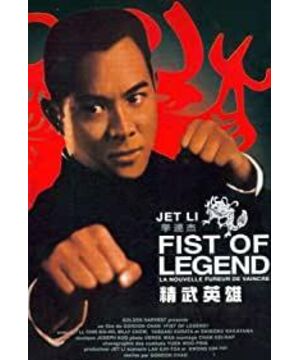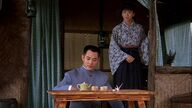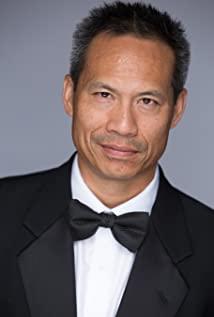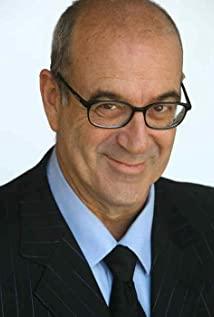[From Martial Arts to Sports] "Fighting Heroes" is an action film directed by director Chen Jiashang and completed in the 1990s. The film has a strong cast, the martial arts part is well-made, and the action is hard and the horse is hard. The focus of this film mainly focuses on six fight scenes, namely, the protagonist (Chen Zhen) in the Japanese school classroom against the many apprentices of the Black Dragon Club; in the Hongkou Dojo against the many apprentices in the dojo; Long Yi competed; competed with fellow student Huo Tingen at Jingwu Gate; competed with Fumio Yue, the head coach of the Black Dragon Society in front of Huo Yuanjia's tomb; fought with Japanese officer Fujita Gang at Hongkou Dojo.
The first, second and third fight scenes are actually warming up the protagonist, establishing in front of the audience the image of a young warrior who has a solid foundation in martial arts and accepts the modern sports spirit and has a clear thinking ability. The climax (the last three fight scenes) made a full preparation. Then, in the next three fight scenes, he seized the opportunity to output to the audience a critical understanding of the trend judgment of traditional martial arts in modern development and the sublation of advantages and disadvantages.
Chen Zhen was the victor in several fights. In the competition with Huo Tingen, Chen Zhensheng is in strength; in the competition with Fumio Fumio, Chen Zhensheng is young; in the battle of life and death with Fujita Go, Chen Zhensheng is in faith. Like Chen Zhen, Huo Tingen has a solid foundation in martial arts and the same age group, and even has the secret skills of his father Huo Yuanjia, which Chen Zhen does not have. However, Chen Zhen improved the training and output mode of martial arts through the study of modern Western physical exercise, and gave up some flashy and fancy forms in the martial arts combat, without wasting physical strength, the power output is more efficient, and the attack advantage is formed to win. . The context of this victory is to explore the reference of traditional martial arts to modern sports (including fighting skills), and to upgrade and improve itself.
Competing with Yue Wenfu on the same boat, Chen Zhen was young and strong, and on the surface it seemed that Chen Zhen won. If the two did not blindfolded and played pure technical competition, after a long fight, Fumio Funakoshi would be defeated by physical exhaustion, and it was also Funakoshi who took the initiative to stop and uttered the emotion of "Funing is afraid of young people, it is a famous saying." However, in the subsequent discussion on the concept of martial arts, Chen Zhen lost. Chen Zhen believed that "martial arts is for knocking down opponents", and Fumio Funakoshi told him, "Young man, you are completely wrong. The best way to knock down people is to use guns, and martial arts is to push people's physical ability to the limit." This is exactly the artistic conception of the modern sports concept of "higher, faster and stronger". So after a civil and military game, Funakoshi Fumio said, "(This competition) is a draw." But the film conveys this idea through the words of a Japanese warrior. After all, Japan is the first modern country in Asia, and there is a certain sense of tribute here. Funakoshi Fumio's discussion of martial arts is actually the development of martial arts from fighting, but the real goal of a martial artist is to comprehend the idea of surpassing himself rather than becoming a duel of beasts.
In the fight against Fujita, who has the nickname of the robot, we can see that Fujita is completely a play that only cares about efficiency. What he pursues is a killing technique that defeats the enemy with one move. It is a means of war rather than competing for honor. Totally out of touch with sportsmanship. At this time, Chen Zhen gave full play to his previous understanding of martial arts and knocked down his opponent. The only thing they have in common is the pursuit of power output and strike effectiveness. Fujita is more brute force, and Chen Zhen is more flexible. Obviously, Chen Zhen has exerted the soft and strong mode of fighting and fighting in Chinese martial arts to the extreme. Fujita's brute force output consumes more stamina and is more likely to be injured by environmental rebounds. After being hit by the inch force, the body joints are injured and the flexibility is lower. In the end, I had to rely on the weapon (the Toyo sword) to end the battle (kill the opponent) as soon as possible, but the Toyo sword, which had just reached the sun, was entangled by the flexible belt and killed itself. This is the unique advantage of traditional Chinese martial arts skills. Western and Japanese martial arts have always used hard weapons. Only Chinese Kungfu has developed soft weapon skills. This is considered one thing in actual combat. Come on.
Why is it a victory of faith. Fujita is an extremist full of aggressor mentality. He believes in pure violent energy, and his confidence comes from the brutality of Yili Jiang Shihui and unscrupulous means to kill people. In the face of Chen Zhen's flexible fighting and environmental leverage, Fujita wasted more physical energy and caused more environmental rebound. The exhaustion of physical energy, the bankruptcy of quick wins, and the accumulation of pain all shake and dilute personal delusions. And Chen Zhen is a party of national righteousness and anti-aggression. When he was discussing with Fumio Funakoshi, he was reminded that "stones are dead, people are alive", "the most impetuous in martial arts competitions", these martial arts are used when they are played The taboos are reflected in Fujita. And this time is very different from the previous competitions. It is a life-and-death situation. There is no room to leave the hand. You can only use your own advantages to the limit. "The idea of resonates with fighting emotions, so the belief should be more firm, and the discussion evolves into battle, and finally wins in the form of killing the opponent.
The origin of "Heroes of Jingwu" comes from Bruce Lee's story of "Jingwumen". Bruce Lee emphasized a free and uninhibited martial arts purpose. The Jeet Kune Do he founded absorbed the advantages of Eastern and Western fighting. Jet Li's version of Chen Zhen's boxing in the film covers a variety of fighting modes, such as boxing jumps, taekwondo kicks, muay thai knee and elbow strikes, and the most powerful grappling and leg techniques in traditional Chinese martial arts. It reflects Bruce Lee's martial arts ideals, inclusive of hundreds of schools and not limited by sects. Chinese martial arts really went to the world, and it started with Bruce Lee.
Personally, I think "Fighting Heroes" is the pinnacle of Jet Li's work, and the film can even be used as a teaching film~~[cover face]
View more about Fist of Legend reviews











